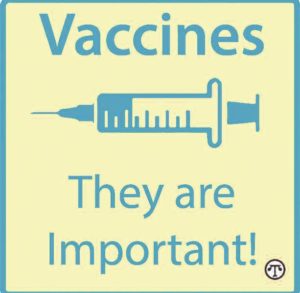 For Your Health
For Your Health
(NAPSI)—High cholesterol is a known risk factor for heart disease and stroke and is estimated to cause nearly 2.6 million deaths annually. Yet, a survey from the American Heart Association shows that nearly two-thirds of people who have high cholesterol don’t think they’re at high risk for a heart attack or stroke.
“My Cholesterol Guide” is a new, online tool that provides information, practical tips and downloadable resources to help the more than 94.6 million Americans living with high cholesterol. The guide is the latest offering from the American Heart Association, the world’s leading voluntary health organization devoted to fighting cardiovascular disease and stroke.
What it is.
Cholesterol is a waxy, fatlike substance found in all cells of the body. Elevated levels of blood cholesterol can create blockages in the arteries and is one of the major controllable risk factors for coronary heart disease, heart attack and stroke.
“People with high cholesterol usually don’t have symptoms, so unless you get tested, you may not realize you need treatment,” said Ann Marie Navar, M.D., Ph.D., a volunteer member of the Association’s Cholesterol Advisory Committee and an Assistant Professor of Cardiology at the Duke Clinical Research Institute in Durham, N.C. “Even though we have a lot of evidence about the benefits and safety of cholesterol-lowering treatment, the challenge is that cholesterol remains underdiagnosed and subsequently undertreated.”
What to do.
The best way to manage high cholesterol is a multipronged approach, including diet, exercise and medication if cholesterol levels remain elevated, she said.
The challenge is that many people don’t recognize their risk due to some of the following misconceptions about cholesterol.
Myths and Facts
Myth 1 – High cholesterol isn’t a concern for children.
High cholesterol can be hereditary. Familial hypercholesterolemia is a genetic disorder that can cause early heart disease. If someone is diagnosed with extremely high cholesterol or familial hypercholesterolemia, it’s important that all family members get tested, including young adults and children, so that treatment isn’t delayed, Navar said.
Myth 2 – You don’t need a cholesterol check until you’re middle-aged.
Getting your cholesterol checked starting at age 20 and talking with your health provider to ensure you understand what it means is crucial because getting treated early can play an important role in reducing the risk of heart disease.
“For every decade your cholesterol is high in your 30s and 40s, you increase your risk for heart disease by more than 30 percent,” Navar said.
Myth 3 – Thin people don’t have high cholesterol.
Overweight people are more likely to have high cholesterol, but even people who maintain a healthy weight and regular exercise can have high cholesterol.
“Since genetics does play such an important role, some people may be doing everything right and still have high cholesterol,” she said.
Myth 4 – If the nutrition label shows no cholesterol, a food is “heart healthy.”
Nutrition labels can be helpful, but you should read beyond the amount of cholesterol a food contains.
“It’s important to look for saturated fats, trans fats and added sugars because these all affect our heart health and cholesterol levels,” Navar said.
Myth 5 – Only people with “high” cholesterol need medicine to lower their cholesterol.
“Even people whose cholesterol falls within what we would call ‘normal’ range can benefit from having cholesterol-lowering medication if they have other risks for heart disease or stroke,” Navar said. “Beyond just your cholesterol numbers, knowing your overall risk of heart disease can help determine if you need to be on treatment.”
Where to learn more
The American Heart Association’s Check.Change.Control.Cholesterol initiative, supported by Sanofi and Regeneron, has information and resources for identifying and managing your cholesterol and other cardiovascular risk factors. Visit www.heart.org/cholesterol for further facts, and www.heart.org/MyCholesterolGuide to download the free guide.
 For Your Health
For Your Health



 College Graduation: Transitioning into life as an independent adult is made much easier with great vision. For many, laser vision correction is a terrific gift the graduate will appreciate for years. Some choose to use their cash gifts to go toward the cost of the procedure.
College Graduation: Transitioning into life as an independent adult is made much easier with great vision. For many, laser vision correction is a terrific gift the graduate will appreciate for years. Some choose to use their cash gifts to go toward the cost of the procedure. For Your Health
For Your Health